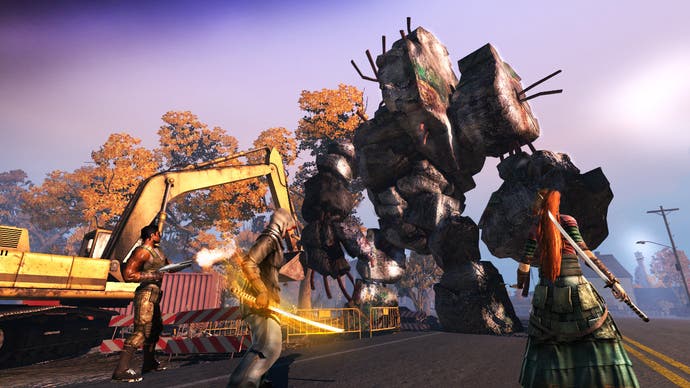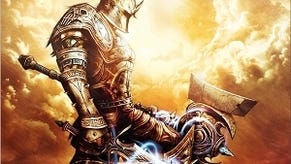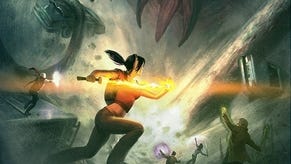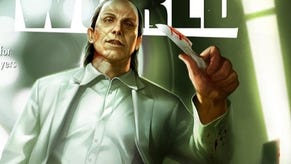The Secret World
Novus Ordo Seclorum.
Beyond the premise, things get no less mysterious. Tornquist's game won't have classes or levelling, opting instead for a skills-based system that promises flexibility without the grind - the designer has previously stated that simply adding new skills to an existing avatar offers players so many options they'll never have to roll a second character if they don't want to. The Secret World will put a thick crust of mud and rock between PvE and PvP, too - the former, along with the bulk of the game's expansive narrative, unfolding on the surface of the Earth, while PvP takes place inside the hollow interior, as guilds (known as cabals) compete for territory and a precious resource called Anima. It's a land-grab that will feed into the influence your cabals wield in the world above, and there's even a rare concession to bare-faced gaminess in the shape of global and local leaderboards which track all manner of stats. It's also been announced, as if this wasn't all dizzying enough, that the PvP game will include quasi-RTS elements. Next we'll be learning that the whole thing doubles as a decent bread-maker, too.
So pelt-fetching touchstones initially seem few and far between, but Tornquist wasn't going to leave something as handy as factions on the cutting room floor. That said, somewhat typically, his are a lot more arty and contradictory than those many games choose to roll with. None of the secret societies fit neatly into traditional archetypes, and all, in fact, are united by the same ultimate aim - to rid the world of an as yet undefined ancient darkness. Despite that, there are huge differences in how they choose to go about their mission, and all the while, when nobody else is looking, they clash bitterly for control of influence and resources.

The Templars are about as close as The Secret World gets to goodies, according to Tornquist. "These guys are old school," he enthuses, "and they've been fighting darkness since the dawn of mankind." They're noble and bound by an ancient code, but there's also an edge to them, an inflexible faith-based mania that values structure, tradition and discipline above all else. "They don't take any prisoners," Tornquist continues. "To get to the demon in the middle of the village, they'd be very happy to burn the whole place down. They're zealots."
At the opposite end of the spectrum are the Illuminati (a word which, all too suspiciously, Microsoft Office claims not to be aware of). The concept art that accompanies them is big on urban decay - dilapidated inner-city factories with broken windows, where rusting loops of chain swing from the ceiling, the dirt and scrap hiding the entries to the cult's secret chambers. In contrast to the cherry lips and upper-class hauteur of the leather-clad Templar I'm shown (if you squint a bit, it looks like the protectors of the Palace of Solomon have all decided to become bike messengers), the lone Illuminati is practically sexless in a dark blue trenchcoat and futuristic jack boots, with a dead-eyed gas mask covering her face.
"They're the baddies, sworn enemies of the Templars," says Tornquist, adding that they're modern and brutally pragmatic where the Templars are fusty and bound by convention. "They're still trying to eradicate evil, but their methods are questionable. They're ruthless and ambitious, and their organisation is set up like a corporation." He also adds, slightly incongruously, that "they know how to party". Gas masks? Jack boots? Parties? Sounds like a Formula One kind of deal.










.png?width=291&height=164&fit=crop&quality=80&format=jpg&auto=webp)




.jpg?width=291&height=164&fit=crop&quality=80&format=jpg&auto=webp)
